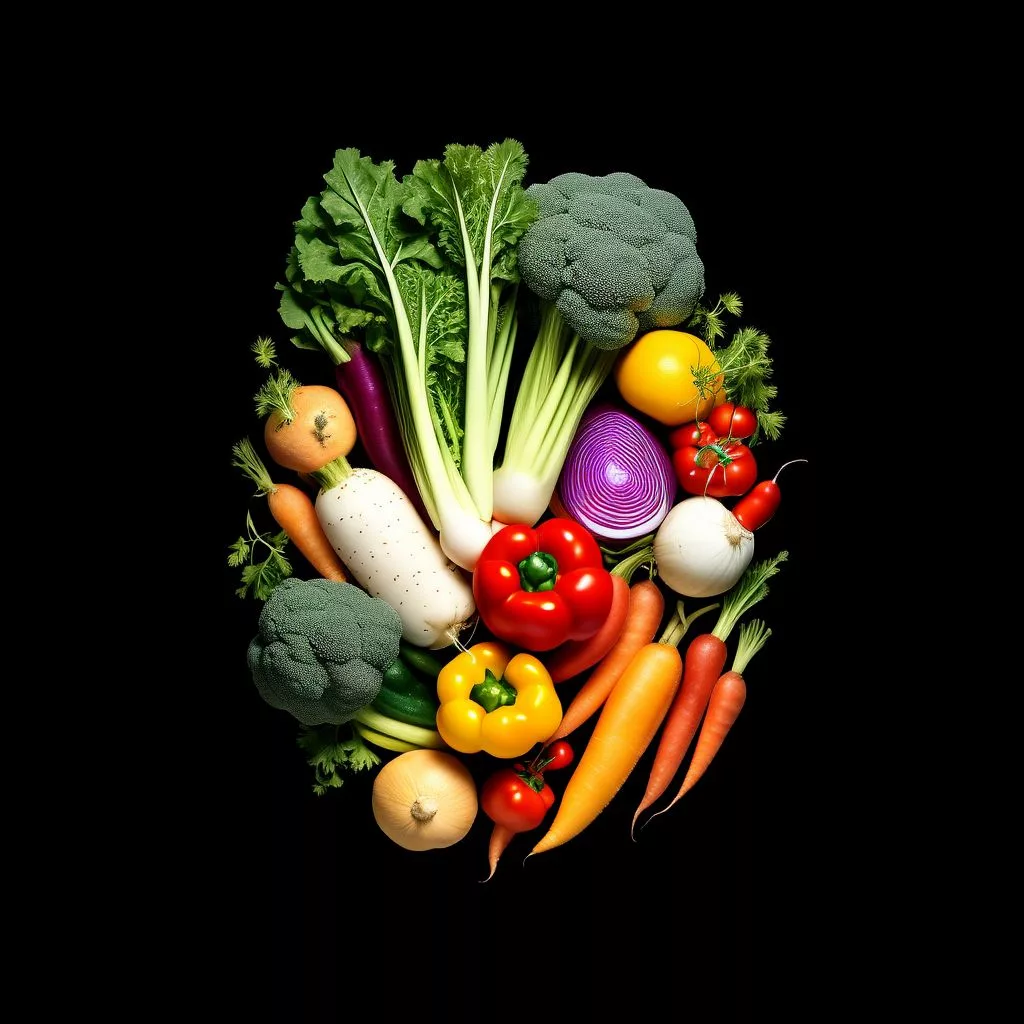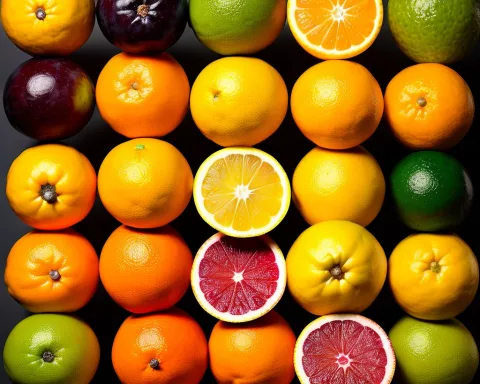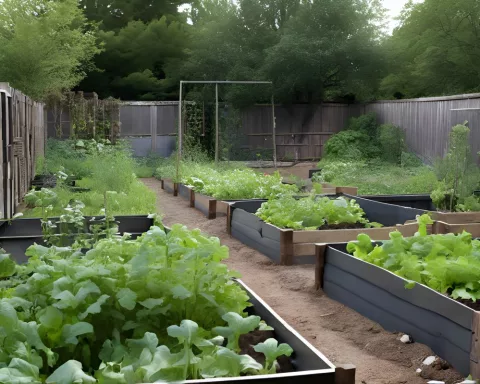Botswana’s decision to lift its vegetable import ban is a breath of fresh air for Southern Africa’s farmers and trade. Starting in December 2024, this change opens doors for South African farmers, allowing them to sell 16 types of vegetables in new markets. With this exciting news, small-scale farmers can thrive, reaching more customers and improving their lives. This shift not only boosts local economies but also strengthens the bonds of cooperation and support among African nations, promising a brighter future for all involved.
What are the implications of Botswana lifting its vegetable import ban?
Botswana’s lift of the vegetable import ban enhances regional trade within Southern Africa, particularly benefiting South African farmers by opening new markets. The phased approach, starting in December 2024, allows for 16 vegetable varieties, promoting economic growth and interdependence in the region.
In the bustling realm of Southern African trade, a refreshing breeze of change has swept through the agricultural community, bringing with it a wave of optimism and opportunity. Dr. Ivan Meyer, the Western Cape Minister of Agriculture, recently heralded Botswana’s decision to lift its ban on vegetable imports as a monumental stride towards economic integration within the Southern African Customs Union (SACU) and the broader African Continental Free Trade Area (AfCFTA).
A Strategic Move for Regional Trade
Botswana’s decision to end its vegetable import ban signals a robust commitment to deepening regional trade ties and fostering a more interconnected African market. This policy shift is being implemented in two thoughtfully planned stages, reinforcing Botswana’s resolve to strengthen economic relations. The first phase kicked off in December 2024, followed by the second phase in April 2025. This phased approach includes a diverse range of 16 vegetable varieties, spanning from pumpkins and broccoli to sweet potatoes and green beans.
Removing these restrictions holds significant implications beyond Botswana’s borders. For South African exporters, particularly those in the agriculturally rich Western Cape, the policy opens new avenues for prosperity. Dr. Meyer emphasized that increased trade within SACU is crucial for enhancing regional value chains and boosting export capacities.
The Western Cape has historically been a powerhouse in vegetable exports to Botswana, contributing significantly to South Africa’s overall export numbers. In the fourth quarter of 2024 alone, the province accounted for a substantial 37% (R3.3 million) of the country’s total vegetable exports to Botswana. These figures not only highlight the region’s agricultural strength but also reflect the intricate trade networks that have been meticulously developed over the years.
Economic Ripple Effects
As the first phase of lifted restrictions took effect, the Western Cape saw a noticeable uptick in its share of exports. This share rose to 63% in the third quarter of 2024 before settling at 55% in the fourth quarter, showcasing the dynamic nature of agricultural trade. With the onset of the second phase, there is palpable anticipation of a further surge in South African exports to Botswana, driven by the high-quality produce from the Western Cape.
The ambitions of the Western Cape extend beyond SACU’s borders. The provincial government aims to elevate the export value to an impressive R450 billion by 2035. This target is not just a numerical goal but a vision of growth, sustainability, and regional integration. Dr. Meyer’s remarks resonate with this vision, framing the lifting of the ban as a pivotal step toward achieving this ambitious objective.
While the economic benefits are clear, there is also a significant cultural and historical context to consider. The trade of agricultural products has long been a cornerstone of African economies, creating a rich tapestry of interdependence and shared prosperity. In many ways, Botswana’s decision harks back to traditional trading practices that underscored communal support and mutual growth.
Empowering Farmers and Communities
The policy change reaches deep into the fabric of society, offering new opportunities to farmers who were previously constrained by trade barriers. Consider the story of a small-scale farmer in the fertile valleys of the Western Cape. For years, his sweet potato harvest struggled to find markets beyond local traders. With Botswana’s market now accessible, his produce can reach new consumers, providing him with the financial stability to invest in better farming techniques and expand his operations.
This narrative is echoed across the region, where lifting trade bans serves as a catalyst for economic empowerment and social upliftment. The Western Cape, with its unique blend of climate and soil, continues to produce high-quality vegetables synonymous with South African agricultural excellence. Access to the Botswana market is not just a commercial boon but a testament to the resilience and ingenuity of the region’s farmers.
Placing this development within broader economic and political frameworks provides additional context. The AfCFTA, designed to create a single continental market for goods and services, stands as one of the most ambitious trade agreements in history. By encouraging intra-African trade, it aims to reduce reliance on external markets and build a self-sustaining economic ecosystem. Botswana’s decision aligns seamlessly with these goals, reinforcing the interconnectedness that AfCFTA champions.
A Broader Perspective on Regional Cooperation
Moreover, the Southern African Customs Union, the oldest customs union in the world, has long served as a model of regional cooperation. Botswana’s move to lift the vegetable import ban strengthens this legacy, showcasing the tangible benefits of collaborative economic policies. This decision affirms that the principles of SACU and AfCFTA are not merely theoretical constructs but practical frameworks that can drive real-world progress.
From an artistic and cultural perspective, this development resonates deeply. Agriculture has inspired countless works of art, from the pastoral scenes in the paintings of the Dutch Golden Age to the evocative poetry of African writers. The rhythms of planting, growing, and harvesting are etched into the collective consciousness, symbolizing a connection to the land that transcends generations.
In the Western Cape, this connection is palpably strong. The rolling vineyards and lush farmlands tell a story of a people who have harmonized with nature to produce some of the world’s finest agricultural products. Botswana’s decision to lift the import ban is a chapter in this ongoing story, one that promises new adventures and successes for the region’s farmers.
Looking at Botswana’s decision to lift the vegetable import ban, it becomes clear that this move is more than just an economic policy change. It stands as a reaffirmation of the power of regional cooperation, a celebration of agricultural heritage, and a beacon of hope for future growth. The journey of vegetables from the farms of the Western Cape to the markets of Botswana symbolizes progress, unity, and shared prosperity.
In essence, the policy change is a testament to what can be achieved through collaboration and mutual understanding. As Southern Africa continues to navigate the complexities of economic integration, Botswana’s decision serves as a guiding light, illuminating the path toward a more interconnected and prosperous future for all.
FAQ: Botswana Lifts Vegetable Import Ban
What prompted Botswana to lift its vegetable import ban?
Botswana’s decision to lift the vegetable import ban is aimed at enhancing regional trade ties, particularly within the Southern African Customs Union (SACU). This policy shift is seen as a strategic move to foster economic integration and create new market opportunities for farmers, particularly in South Africa.
When will the lifting of the import ban take effect?
The lifting of the vegetable import ban will occur in two phases. The first phase begins in December 2024, allowing for the import of 16 specific vegetable varieties. The second phase is scheduled for April 2025, further expanding trade opportunities.
Which vegetable varieties will be allowed for import into Botswana?
The import ban lift will initially include 16 types of vegetables, such as pumpkins, broccoli, sweet potatoes, and green beans. This diverse range aims to meet market demand and provide consumers in Botswana with high-quality produce.
How will this change impact South African farmers?
The decision to lift the import ban presents significant opportunities for South African farmers, especially those in the agriculturally rich Western Cape. It will enable them to reach new markets, potentially increasing their export capacity and boosting their financial stability.
What are the economic implications for the region?
The lifting of the vegetable import ban is expected to enhance regional trade, stimulate economic growth, and strengthen interdependence among African nations. It is projected to lead to an increase in the Western Cape’s share of exports, which rose to 63% in the third quarter of 2024. The Western Cape government aims to elevate its vegetable export value to R450 billion by 2035.
How does this decision align with broader trade agreements like the AfCFTA?
Botswana’s decision to lift the import ban supports the goals of the African Continental Free Trade Area (AfCFTA), which aims to establish a single continental market for goods and services. By encouraging intra-African trade and reducing reliance on external markets, this move reinforces the interconnectedness championed by the AfCFTA, promoting a self-sustaining economic ecosystem across the continent.












